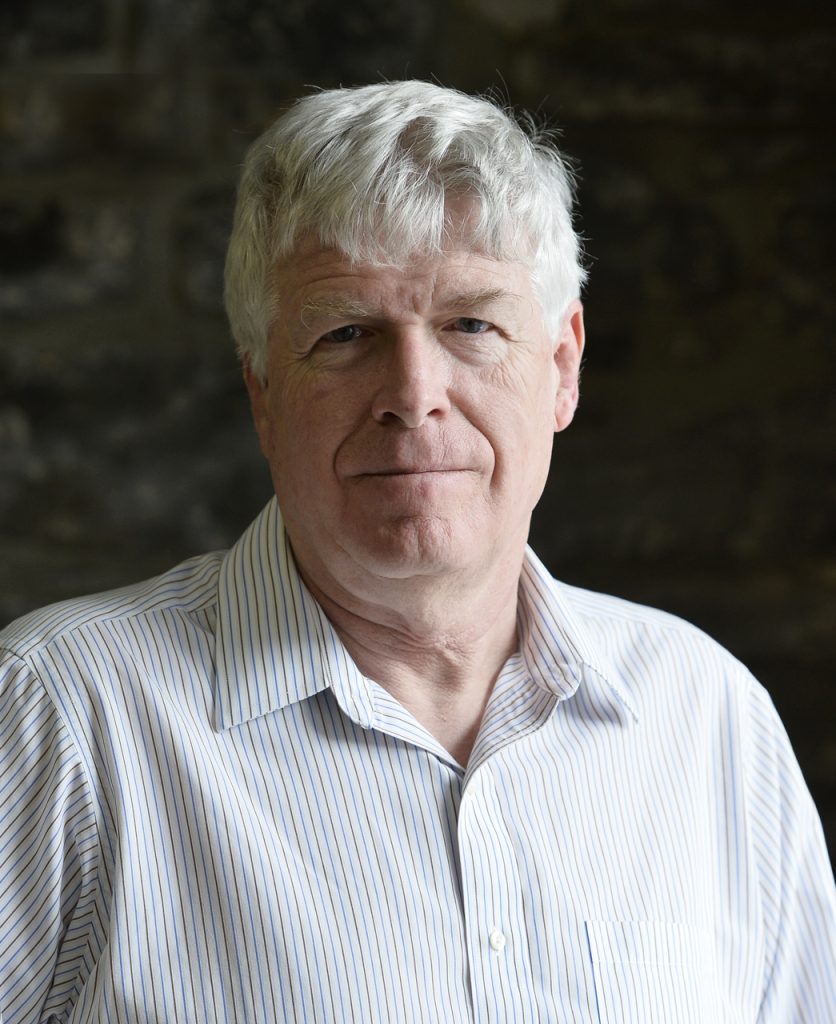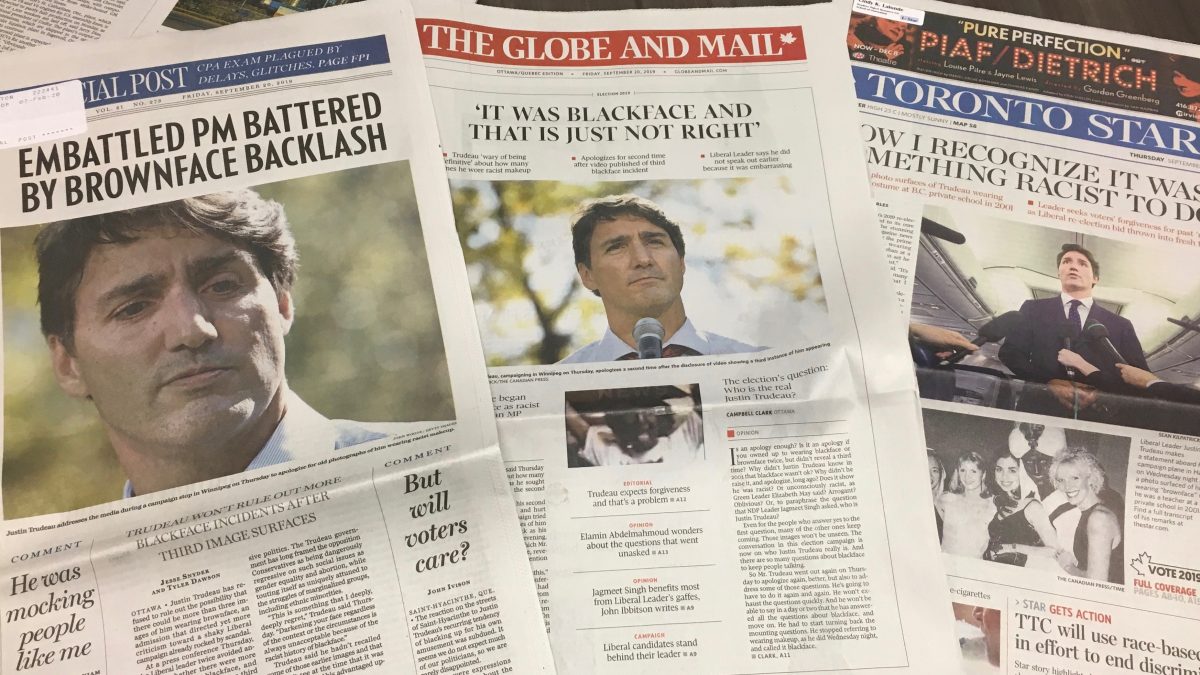Three recent examples in the federal election campaign highlight what appears to be a growing gap between how the public and media perceive issues and what each considers important.
That’s a concern for several reasons.
It suggests media’s traditional role as a marketplace of ideas where issues are debated, thereby helping to shape public opinion, is fading.
It also seems that little has been learned from the US media and campaign experience in 2016 by the Canadian media about the importance of listening to voters as opposed to telling them what to think.
Finally one of the reasons only nine per cent of Canadians say they are willing to pay for news online may be that the news they receive seems so foreign to how they perceive the world. They no longer find it valuable or necessary in helping them with the decisions they make that shape their daily lives.
Different stories, same response
There’s a common thread between the media fixation and multiple-day coverage of the federal ethics commissioner’s recent report and subsequent suggestions the RCMP may be doing something surrounding Justin Trudeau and the SNC Lavalin issue; Liberal party efforts to drag up Conservative leader Andrew Scheer’s 15-year-old statements about abortion and same-sex marriage; and Justin Trudeau’s 20 and more year old dress-up appearances as Aladdin and Harry Belafonte.
None of that coverage changed public opinion in surveys of Canadians about their political leaders, and in the context of an election, who they will support.
In the days after the Trudeau pictures were published, news organizations went to the streets and found Canadians, including many visible minorities, were disappointed, thought it was stupid and insensitive but they also said it happened 20 years ago and is not going to change what they do on October 21. A media search for public outrage came up empty-handed, yet that didn’t seem to affect coverage. If anything it led to those who were outraged, including those in the media, being outraged that more people weren’t outraged as highlighted by seven pages of coverage in the Globe and Mail on September 20.
The same thing happened when the Liberals highlighted Scheer’s 15 year old comments. There is nothing that suggests whatever he thought then will govern his actions now, a point the public made when asked and Scheer himself said. Polling reflect that view that this wasn’t really relevant as opinions of leaders did not change after several days of coverage. That was then, this is now. Move on please.
Whatever impact the SNC Lavalin issue had on Canadians was established much earlier in the year and the conflict of interest ruling didn’t change that. Subsequent surveys showed no significant change in perceptions of Trudeau and Andrew Scheer.
Absence of perspective
When the Reform Party arrived in Ottawa in the mid-1990s there was a small but vocal group within it that could be best described as ‘perma-mad’. They were angry about everything from every decision by the Liberal government to their perceived unfair treatment by the media to cultural and social policies and immigration and everything in between. Before their feet hit the floor in the morning they were mad, they were angry about everything all day long and the last thing they thought of before falling asleep at night was how mad they were.
It was incongruous largely because it lacked perspective. Not everything is a 10-alarm fire. When everything is, then very quickly nothing is. Others in the party moved the ‘perma-mad’ crowd to the fringe, where they would erupt on occasion attracting attention. But the mainstream of the Reform party assessed political issues on their individual merits with a degree of perspective the ‘perma-mad’ gang never had.
An ironic legacy of the Reform Party, which always claimed that the media was Liberal and part of the establishment and therefore part of the problem in Canada, is that it’s now much of the media that seems ‘perma-mad’, where everything is that 10-alarm fire.
It is egged on by the cesspool of social media that captivates journalists even as the general public pays little attention, by those who are either paid to be permanently outraged or may have adopted it as a lifestyle and perhaps by the media’s increasing frustration at its marginalization in the eyes of the public. The result is campaign coverage that increasingly lacks perspective.
Incongruous coverage
That also makes the coverage as incongruous to most of the audience as the ‘perma-mad’ Reformers were 25 years ago.
Canadians bring perspective to bear every day on the large and small decisions they make in their lives and families. Some things are more important than others. A few things may change minds. Others are interesting and others are just trivial. There are not many Canadians who don’t regret some things they did in their past. The skill is in differentiating what is consequential from what is not.
The media has traditionally played a valuable role in helping its audience sort out the consequential from the inconsequential or less consequential. The media makes that argument in positioning itself as an essential pillar of democracy.
Allowing that to slip away when its economic future is threatened and audiences are already disappearing, seems both shortsighted and a self-inflicted marginalization when the media can least afford it.

Christopher Waddell is a Professor in the School of Journalism and Communication at Carleton University, a former CBC Parliamentary Bureau Chief, executive producer of news specials for the CBC and Globe and Mail Ottawa bureau chief.





A compelling analysis, Chris. The boys and girls on the bus are in full tabloid frenzy mode, when they should be examining the issues.
Thanks for this, I found it interesting when reading the Globe & Mail this morning that, as well as the seven pages of coverage, all 12 letters to the he editor were on the Blackface story. Of the 12 letters, three were totally negative and the rest were not – one writer said ..” The brownface photo certainly reflects a youthful error in judgement. But am I going to punish myself by not voting for him? Absolutely not.” It seems as if the readers of the Globe are not as hysterical as the columnists and other writers.
After the Trudeau story broke,the polls reported support for the Liberals was up..Supports your story on the media.
Sorry, I have no time for Waddell. None at all.
The other thing to take into account is that not all people of visible minority status are as hair-on-fire about this as the white pundit class wants them to be. Or, that they are bothered by the Trudeau pictures, but see the bigger picture of what they know the Conservatives would DO and that this is not representative of who Trudeau IS. PoC are not a monolith. They are saying “stop being offended on our behalf! We can think for ourselves!” So who is the real racist here? Trudeau for his idiotic mistake or the media for perpetuating, whether due to unintentional blindness or willful ignorance and protection of their own “privilege,” structural inequalities and whitesplaining of diverse people’s diverse opinions — all the while condemning Trudeau for “fake wokeness” and using words like whitesplaining? Seems to me they’re using their “scandal” coverage as an excuse to absolve themselves.
The problem is many of these PoC commenters are confined to social media shouting into an echo chamber. They have been demanding that newsrooms be representative of diverse voices for years. Judging by the attitudes recently on display at Postmedia (anti-immigration op-ed) and G&M (publishing hatemonger Ezra Levant, FFS), those demands seem to be falling on deaf ears. This has the potential to be a teaching moment for a real, authentic conversation on race. Instead it’s just partisan grandstanding, pundits bloviating about “strategy” and polling aggregators with horse race coverage and analysis of analysis on how this will affect the outcome.
Someone commented this morning on Twitter that CBC made a passing comment that their inboxes have been filled with demands that they get over the scandal-mongering and cover policy points rather than sensationalism and “hot takes.” What do they do? Publish more hot takes about sensationalism and ignore salient policy points. And make no intent whatsoever of diversifying their staff. Trudeau ironically seems to be the only one learning any lessons from this. I never thought I’d agree with Trump on anything but the fake news really has become the enemy of the people. Not a big surprise when Postmedia itself is owned by the parent company of the National Enquirer. Up next: 24/7 breathless coverage of Trudeau’s alien baby in greenface. Stop the presses! No, please, stop the presses. Just stop.
Very worthwhile article…would add that the media is now perceived as highly partisan and predictable by many Canadians. The Sun and National Post chain will be anti-Liberal no matter what the subject and the Toronto Star will be pro. Politics is treated like professional sports…it is my team against the other teams and I always cheer on my team and boo the opposition. Thus the contribution of the media to the democratic exercise has been devalued…it is no longer an outside critical observer but a participant in the actual game itself.
Good Analysis Chris ! I mostly agree. I think the media’s responsibility is to also put events in context with background and historical perspective as well. The challenge main stream media has today is lack of resources to get a good perspective of the country. Street era are done mostly in big urban downtown centres where most people are middle class or above, and perhaps don’t experience any racism. If you go outside the downtown cores. There would be many examples of passive racism. This is the perspective the mainstream media doesn’t understand. I believe if you came to the country in the last 10 years in a major urban centre. You would have a different experience than someone who came to Canada More than a decade ago and especially in a smaller community. To get proper perspective you need to scour all parts of Canada
Please stick to the boring and relevant details of the day. What are the issues facing Canadians in the current and tomorrow! Please do your jobs! Instead of tailpipe sniffing.
During the election coverage a lot of reporters would do well to reflect on this wise piece.
A refreshing article that reflects good journalism. I don’t have to agree or disagree with its contents. That is immaterial. What is material is the article presents a balanced perspective